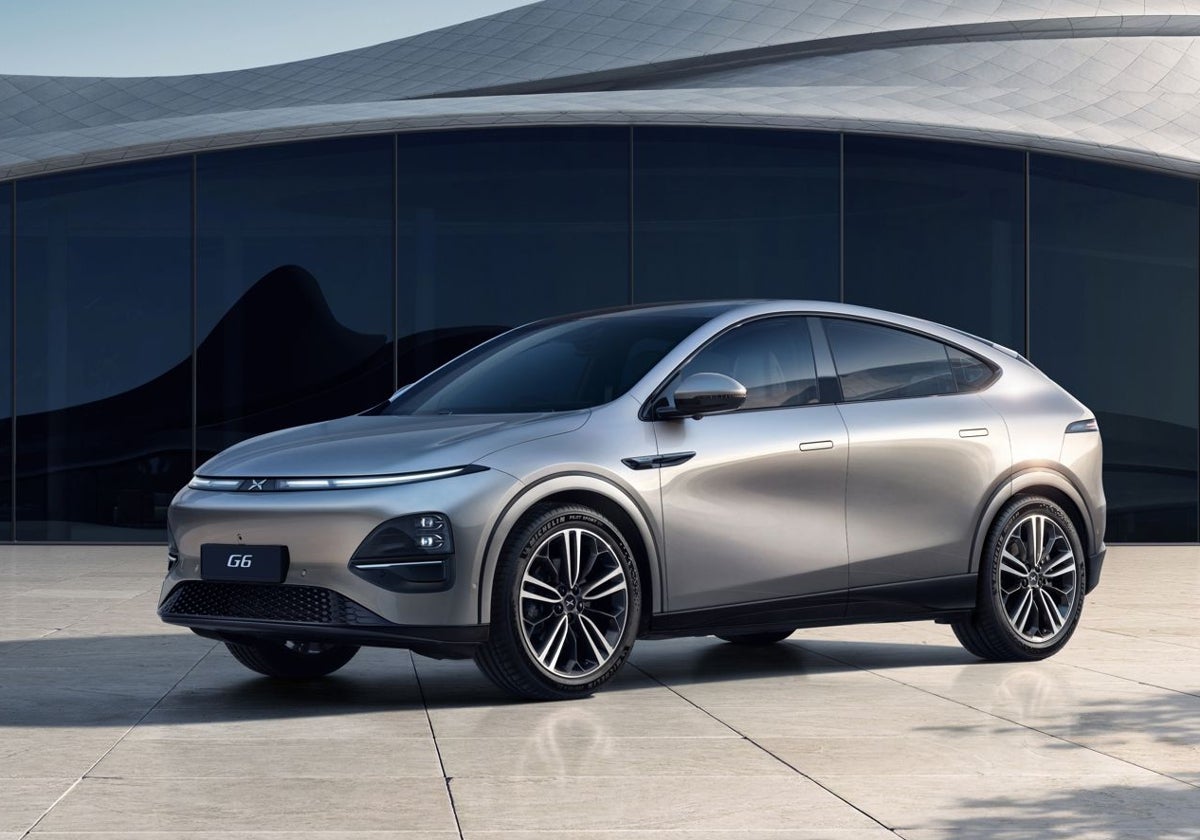

Sections
Services
Highlight

Juan Roig Valor
Miércoles, 28 de agosto 2024, 09:05
The tariffs on Chinese electric vehicles imposed by the European Commission are proving to be an effective incentive for Chinese manufacturers to consider shifting their production footprint to the Old Continent.
The latest to join the land scouting is Xpeng, the partner of the Volkswagen Group in the Yangtze country. In an interview with Bloomberg, its CEO, He Xiaopeng, stated that he is looking for "areas with relatively low labor risks."
Xpeng is comparatively one of the youngest electric vehicle manufacturers in China – the company was founded in 2014 – but its ambitions have a global scope. According to Xiaopeng, their expansion plans "will not be affected by political decisions such as Brussels' tariffs, but the profitability of the European market will be reduced."
In the provisional tariffs that came into effect on July 4 and were revised in mid-August, in addition to the 10% applied to Chinese vehicles, additional rates of up to 36.3% were established for zero-emission models, to balance what Brussels considered unfair competition.
The rates will remain in effect until November when member countries can vote for their definitive establishment or a bilateral agreement between the EU and China has been reached. If implemented, they could determine foreign trade for the next five years.
China has already threatened retaliatory measures, whether with the Spanish food industry, French wine industry, or German automotive industry, all well appreciated by the affluent classes in the Asian country.
Regarding automobiles, the Chinese Ministry of Commerce indicated that they were studying an additional tax on engines over 2.5 liters displacement. This, which at first glance has an environmental basis, targets German manufacturers who export powerful models to the country.
China accounts for about a third of annual sales for BMW, Mercedes-Benz, Audi, and Porsche. While the first three have factories in the country and models specifically designed for the market, Porsche only imports its products.
However, Xpeng does not only face tariff issues abroad – Turkey, the USA, and Canada all significantly increased their taxes on Chinese electric cars – but also has to deal with a price war, lukewarm sales, and product development disputes in its own market.
In the first half of the year, the manufacturer declared that it had sold 50,000 vehicles. Comparatively, the country's largest manufacturer, BYD, registers about 250,000 per month. However, collaboration with the Volkswagen Group has caused the operating margin to go from -3.9% in the second quarter of 2023 to 14% in the same period of 2024.
One of Xpeng's strong bets is on artificial intelligence, stating that "this technology will be more important for the future of automobiles than battery cells." Before its factory in Europe, the brand intends to create a server center to store data generated by its vehicles necessary for autonomous driving.
Publicidad
Publicidad
Te puede interesar
Publicidad
Publicidad
Esta funcionalidad es exclusiva para registrados.
Reporta un error en esta noticia

Debido a un error no hemos podido dar de alta tu suscripción.
Por favor, ponte en contacto con Atención al Cliente.

¡Bienvenido a TODOALICANTE!

Tu suscripción con Google se ha realizado correctamente, pero ya tenías otra suscripción activa en TODOALICANTE.
Déjanos tus datos y nos pondremos en contacto contigo para analizar tu caso

¡Tu suscripción con Google se ha realizado correctamente!
La compra se ha asociado al siguiente email
Comentar es una ventaja exclusiva para registrados
¿Ya eres registrado?
Inicia sesiónNecesitas ser suscriptor para poder votar.